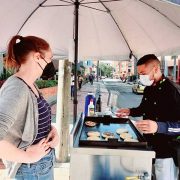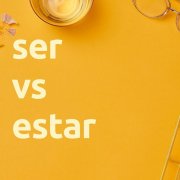Vaina, the most used and versatile Colombian word
The word “vaina” is such an important part of the Colombian lexicon. It’s a word we use daily; it’s simple and complex at the same time, so it deserves an entire article!
This word is interesting, simple, and complicated. It is probably the most widely used and most typical of all “colombianismos”. It is also the most versatile and multipurpose Colombian slang word.
For those who want to learn Colombian Spanish, learning how to use this word is a must!
Explaining this word is difficult even in Spanish, but we will try our best to help you understand it.
Let us first give you some context. Let’s go back a bit in time…
Where does the word “vaina” come from?
This word has its origins in the Latin language and goes back to the origins of the Castilian language. In the early days, it was written ‘vayna’, and even ‘bayna’. Today, the correct spelling is “vaina”.
It comes from the Latin word ‘vagina’, which in Roman times was the sheath in which combatants kept their sword or saber.
Nowadays, ‘Vagina’ is only used to mention that intimate part of the woman, and the word “vaina” remains with its original meaning… However, as you will see, the term has evolved and has acquired multiple meanings.
In times of the Spanish colony, between the sixteenth and nineteenth centuries, the word moved to America. It was here that it acquired its picturesque, varied, funny, and novel meanings.
What does “Vaina” literally mean?
Interestingly enough, the literal meaning of this word is also quite diverse.
As time passed, the word “vaina” started widening its meaning. Some of the definitions are:
1. “Vaina” means “sheath.”
The word is applied to the lining of knives, machetes, pocket knives, and tools
2. “Vaina” refers to the tender and long shell in which the seeds of some plants are enclosed.
3. In Chile, “vaina” was adopted three hundred years ago to name a traditional cocktail made with rum and egg shake.
4. In maritime and nautical lexicon, “vaina” means “casing” or “tabling”. It refers to the hem that is made on the edge of a sail to reinforce it.
5. “Vaina” in Colombia is used for multiple purposes, but the most widely used is for referring to something we don’t know the name of. It is something similar to “thing”, “thingy”, “stuff” in English.
However, in Colombia, the meaning goes beyond a simple “thingy”… That’s why we are writing this article.
What does “Vaina” mean in Colombian Spanish?
“Vaina” is one of the few words that has managed to pass from one generation to the other. It is a word used by every Colombian regardless of their age and even their social status.
How come a simple word such as “vaina” could have that many different meanings?
We don’t really know; we think it’s because, for years, it has been used to refer to a variety of things, none of them related to one another.
As Juan Gossain, Colombian writer and journalist, says,
“I would dare to say that it is the most Colombian of all words. And the most imprecise.”
Imprecise?
Yes, “vaina’ means everything, and means nothing. It’s a word that has multiple meanings but has no meaning at all.
Sorry if it sounds confusing. Trust us, if you learn how to use this word, you have mastered Colombian Spanish.
Laura Restrepo, a Colombian writer, once wrote the following piece trying to explain what “vaina” means:
“Vaina es un comodín universal que para todo sirve…
Exclamamos ¡qué vaina! cuando se trata de un desastre, y ¡qué buena vaina! para referirnos a un triunfo e incluso a la salvación.
Para precisar su extenso significado, suele utilizarse precedida por el pronombre demostrativo “esa”: Pásame esa vaina, decimos señalando con el índice, y podemos estar pidiendo desde una aguja hasta un elefante.
Ya salí de esa vaina alude a cualquier alivio, desde curarse de un resfrío hasta ganar un juicio contencioso- administrativo.
Al extranjero que visite estas tierras, familiarizarse con el múltiple y versátil manejo de vaina le ahorra tener que aprender español.
…El cosmos entero cabe en vaina, que se destaca como concepto borgiano por excelencia aunque el propio Borges nunca lo haya utilizado: Vaina es el Alfa y el Omega; Vaina es el Aleph.”
We keep this definition in Spanish for you to get familiarized with the broad meaning and use of this word.
In English, the writing could be translated as follows: “Vaina” is a universal “wild card” that works for everything…
We exclaim “Qué vaina!” (“what the heck!”) when it comes to a mess, and “Qué vaina!” to celebrate a triumph (“how great!”), or even to refer to salvation or a relief (What a relief!”).
To clarify its extensive meaning, it is usually used preceded by the demonstrative pronoun “that”: “Pásame esa vaina” (pass me that “thingy”), we say pointing with the index. We can be asking from a needle to an elephant…
“Ya salí de esa vaina!” (Finally I’m done with that!) refers to any relief, from recovering from a cold to winning a contentious administrative court trial.
… The entire cosmos fits into a “vaina”, which stands out as a “Borgiano” concept par excellence even though Borges himself never used it: “vaina” is the Alpha and the Omega; “vaina” is the Aleph. ”
Learning to use “Vaina”
Yes, we know it’s one of the trickiest words in Colombian Spanish, but learning it will make your life easier when visiting Colombia or talking to your Colombian friends.
How do we use this word?
The easiest one:
Use 1: A generic word for any situation or object
“vaina” is generally used as the words `” thingy”, “stuff”, “thingamabob”, or any other similar vague words in English.
For example:
Hoy no creo que pueda ir con ustedes a comer, tengo muchas vainas aún por hacer
“I don’t think I can come today with you guys for dinner, I still have too many things to do”.¿Qué ingredientes tiene esa sopa? – ¡Un montón de vainas que no recuerdo el nombre!
What ingredients does that soup have? – A bunch of things I don’t remember the name ofAh, no me acuerdo como se llama esa vaina!
“Oh, I don’t remember the name of that thingy!
Use 2: To refer to small problems or difficult situations.
“vaina” can be also used as the English expression “too bad” or “That sucks!” and its synonymous
For example:
Llegué tarde y perdí la cita con el dentista! – No, ¡qué vaina! Y ahora?
“I was late and I missed the appointment with the dentist! -No, too bad! Now what?Pedro perdió ayer su pasaporte! – No, ¡qué vaina!
Pedro lost his passport yesterday! No, that sucks!
La vaina está jodida en Colombia!
The situation is complicated in Colombia (referring to the economic, social, political situation
Use 3: To refer to something good that happened
Yes, we know it’s exactly the opposite of the previous one…
For example!
Mamá, recibí la carta de la universidad, ¡me aceptaron! – ¡Qué bien! ¡Qué buena vaina!
Mom, I received the letter from the university, I got accepted! – Great! That’s awesome!Hmm, qué vaina tan buena!
Hmmm, so yummy!
Other examples:
¡Qué vaina!
What a shame!, or Too bad!¡Ni de vaina!
No way!Nada que le cojo el tiro a esta vaina!
I still haven’t managed to use this thing!La vaina es que a mí la que me gusta es Paola, no Andrea…
The thing is, the one I like is Paola, not Andrea…¡Qué maluco huele esa vaina!
Eww, that stinks!Hmm, qué rico huele esa vaina!
Hmm, It smells so good!Referring to a movie: ¡Qué vaina tan mala!
This movie sucks!¡A mí no me vengas con vainas!
Don’t bullshit me!
“Vaina” even has a song: Una vaina loca
Es que me gustas tú na’ más
No me importan las demás
Una vaina loca que me da
Que por más que intento no se va
The thing is I like you, no one else
I don’t care about any other girls
A crazy thing I feel
That no matter how hard I try, it doesn’t go away
We hope you now have a better idea of how we use the word “vaina” in Colombia. Remember that the best way to learn Spanish is by practicing and practicing!
If you want to improve your Spanish and learn more about Colombian slang, join our classes in-person, or classes online. Also, read our bi-weekly blog and our social media.











